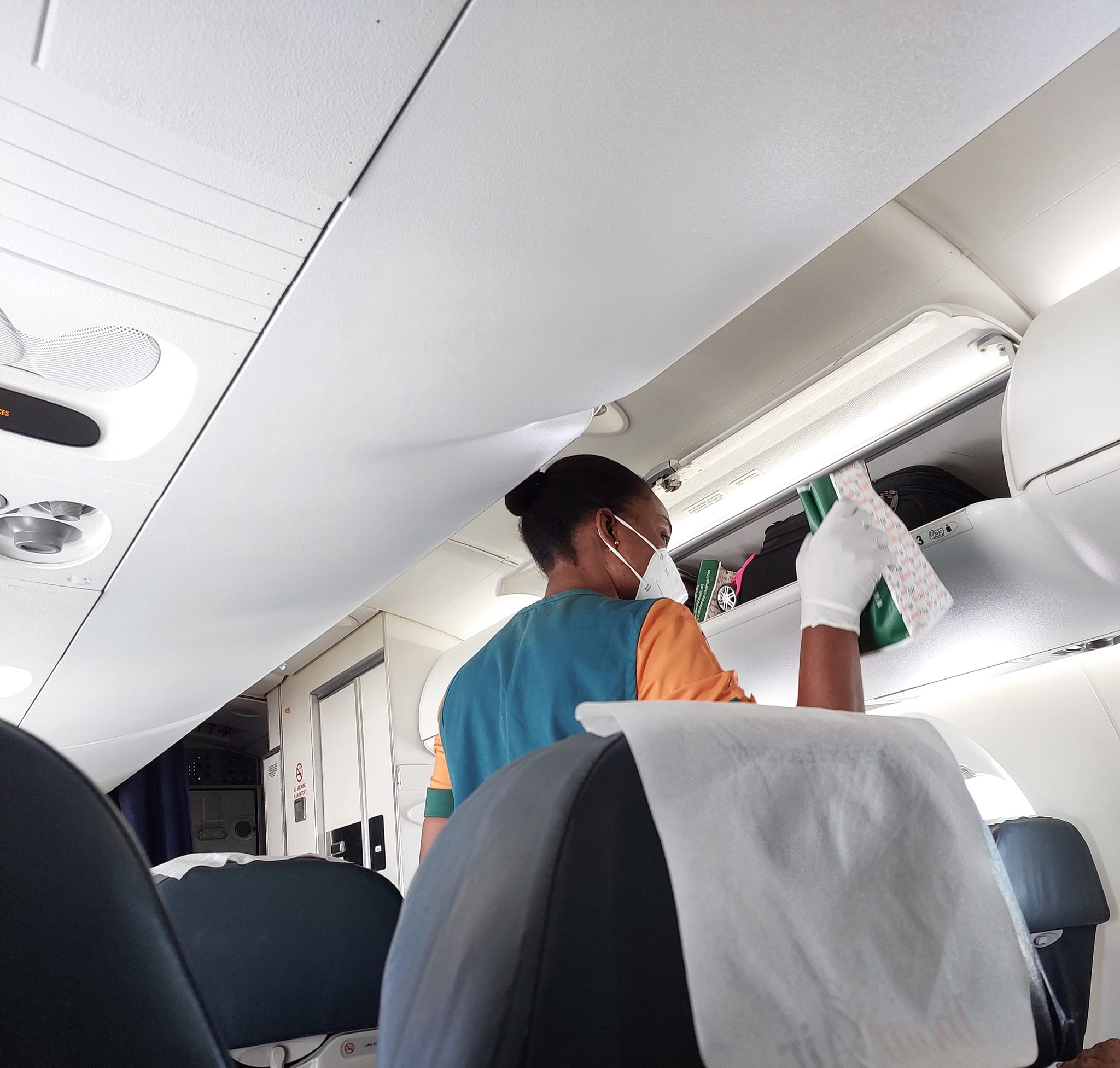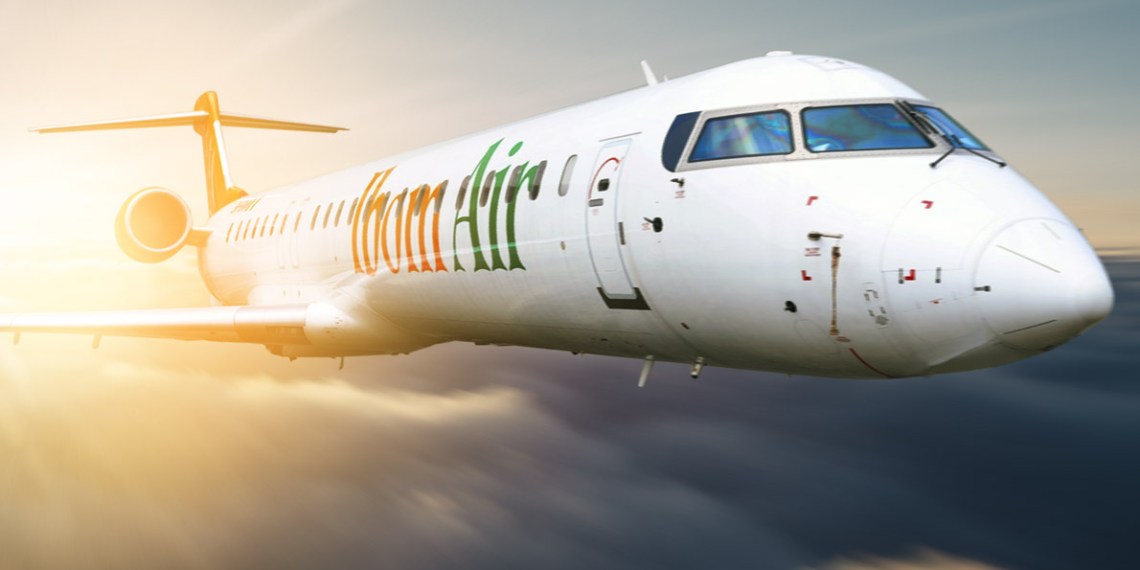Across Nigeria, it’s becoming increasingly common to hear travelers praise Ibom Air, a regional carrier headquartered in the South-south and fully owned by the Akwa Ibom State government. The airline’s rapid growth and impressive service record have set it apart in the crowded domestic aviation landscape.
Launched in 2019, Ibom Air has steadily cultivated a reputation for operational excellence, a feat many aviation watchers attribute to the strategic vision of Akwa Ibom State leadership and the professional management team at the helm. Through consistent performance and a strong customer focus, Ibom Air continues to earn accolades while reshaping expectations for local air travel.

For many Nigerian passengers, Ibom Air’s most admired feature is its schedule reliability. Travelers have repeatedly reported on the airline’s remarkable punctuality in both departures and arrivals, as confirmed by testimonials shared with PREMIUM TIMES.
Passengers say the airline stands out for its clean cabins and attentive customer service. Several have noted that their experiences onboard Ibom Air rival international standards, underscoring the company’s dedication to passenger comfort and satisfaction.
Yet, the airline’s punctuality can sometimes surprise even regular fliers—accounts abound of travelers missing flights because they underestimated how strictly Ibom Air keeps to its departure times.
In March 2021, Ibom Air reported a 99.8% schedule reliability and a 96% on-time performance, an achievement that sets a new benchmark in Nigeria’s aviation history, where delays and cancellations are often the norm.
During that month, the airline operated all 708 scheduled flights, with 706 flights departing on time. Of those, 678 flights met the standard for punctuality, according to company figures.
By 2021, Ibom Air ranked second in the number of domestic flights operated nationally and achieved the industry’s best on-time performance for the year, according to data released by regulatory authorities.
Ibom Air’s fleet includes seven aircraft—five Bombardier CRJ900s and two Airbus A220-300s—serving 11 routes across six major cities: Abuja, Calabar, Enugu, Lagos, Uyo, and Port Harcourt. By July 2022, it had completed over 23,600 flights and transported nearly two million passengers, demonstrating significant market traction in a relatively short period.
Its diversification towards larger Airbus jets is part of a strategic plan to expand, with two A220s delivered as a first installment toward a larger commitment of ten aircraft.
Ibom Air’s dominance is especially clear in its hub of Uyo, where it has established itself as a market leader, and in routes to Calabar, where only Air Peace operates alongside it.
For popular routes such as Lagos-Abuja, Ibom Air has become a preferred choice for travelers prioritizing punctuality and efficiency.
Customer Experiences and Local Reviews
Chidozie Uzoezie, aviation consultant and CEO of The Afritraveller, flew with Ibom Air from Lagos to Enugu in October 2021 and shared a detailed review. He rated the experience highly: Check-in (85%), Boarding (80%), Punctuality (90%), Aircraft quality (90%), Cabin crew (90%), In-flight service (80%), Flight experience (95%), and Seat comfort (95%).
This flight was operated with a CRJ-900LR aircraft.
“Most of my expectations were met and even exceeded, especially with respect to punctuality, crew and the actual flight,” Mr. Uzoezie recounted in a publicly shared review.
He added: “Speaking in relative terms, the flight was everything I had expected, it surpassed the average domestic flight in Nigeria. And I’ll definitely fly with Ibom Air again.”
He also described the aircraft’s interior:
“This aircraft (registration 5N-BWK) was delivered to Ibom Air in 2019 and features 90 seats in an all-economy layout. The cabin felt fresh and clean as I boarded, and my first impression was of comfort and understated elegance. My window seat (12D) offered a great view and generous legroom.”
“The CRJ-900’s four-abreast seating in 2-2 configuration made for a comfortable narrow body cabin—much better legroom and seat width than typical Nigerian domestic flights. I was able to cross my legs without any discomfort, and the leather seats were a nice touch, enhancing the experience.”

Nigerian travelers, both at home and in the diaspora, are increasingly sharing positive stories about Ibom Air on social media. Their feedback amplifies the airline’s reputation.
Nayomi (@Naayoomee), a Twitter user, recounted switching to Ibom Air after another airline delayed her Lagos-Abuja flight by six hours in June. “I went down and got Ibom Air, best flight I ever had. Didn’t even know when we landed. I rate them five (5) stars,” she tweeted.
Oluwole Dada (@oluwole_dada), a sales and marketing professional, tweeted that his informal survey showed Ibom Air is the most punctual domestic airline: “Many of the other airlines delay flights with no regard for the customers. They care less if (passengers) have an appointment or business engagement.”
Even visitors from neighboring countries have taken note. Kate Nanyongo (@KateNanyongo), visiting from Cameroon, described her experience with Ibom Air as “wonderful,” saying she continued to share her positive experience after returning home.
Professionalism and Independence: Setting New Standards
A number of aviation insiders told PREMIUM TIMES that Ibom Air operates with minimal political interference—unusual in an environment where government projects are often subject to bureaucratic or political interests. According to Julius Ugwu, a South-south based entrepreneur, “For the state to allow professionals to manage the airline independently is rare. In most places, politics or ethnicity influences every decision.”
Governor Udom Emmanuel, a former banker and driver of Ibom Air’s establishment, has spoken about why most of the airline’s initial hires came from outside Akwa Ibom State: “For a person to fly a CRJ 900, there’s a minimum number of freighting hours he must have on the airplane … We need to have our people rated, and we will train them so that very soon, there will be more Akwa Ibom names in the cockpit.”
He further noted the state’s commitment to youth development, highlighting training programs for aspiring pilots and aeronautical engineers. Currently, Ibom Air employs more than 500 staff members and continues to invest in growing its local workforce.
In partnership with the state government, the airline is also sponsoring training for 100 young pilots, ensuring a talent pipeline for future growth. The latest batch is reportedly preparing to travel to Airbus’s training center in France.
Surviving Crisis: Turbulence and Triumphs
Ibom Air’s journey has not been without challenges. Shortly after its launch, the global COVID-19 pandemic disrupted air travel. This was followed by the nationwide #EndSARS protests in 2020 and the ongoing aviation fuel scarcity, exasperated by Nigeria’s weakening naira.
Chief Operating Officer George Uriesi shared how these events threatened the airline’s survival: “This is an industry of tempestuous storms. One moment you’re facing a lockdown from a pandemic, then the next, protests. And then comes fuel price hikes, currency devaluation— it’s a wild roller coaster, but we keep pushing ahead to succeed.”
Incredibly, despite these headwinds, Ibom Air continued to receive commendations from travelers and industry watchers.
For instance, in July 2023, Ibom Air achieved a 72% schedule reliability and 68% on-time performance, despite the sector’s many challenges. Out of 933 flights scheduled, 848 took off as planned, with 271 experiencing minor delays and 265 rescheduled or cancelled, according to internal records.
Recent data from the Nigerian Civil Aviation Authority (NCAA) positions Ibom Air as the second-highest operator in domestic flight volume during the first quarter of 2022, with the best on-time performance nationally. In contrast, Air Peace, Arik, and Max Air recorded the highest numbers of flight delays.
The airline openly acknowledges these sector-wide struggles, stating on August 2, “We continue to manage the difficulties arising from fuel scarcity and the closure of the domestic runway at the Murtala Muhammed International Airport in Lagos.”
Social media sentiment still remains broadly positive. A Twitter user, @marvelumoh, commented, “You can’t really compare Ibom Air with any airline in the country. Yes, some issues have come up recently, but they’re still ahead of others.”

Expansion and Future Plans: A Gateway to West Africa
The Victor Attah International Airport, named after a former Akwa Ibom governor, is undergoing upgrades designed to support Ibom Air’s expansion. The state recently completed a new international terminal, built by a well-known civil engineering firm, alongside the second phase of a 3.6km runway.
A state-of-the-art Maintenance, Repairs and Overhaul (MRO) facility is also nearing completion. Governor Emmanuel explained the facility’s significance: “Our MRO can take two 747 aircraft, eight A-220 300 series, and all our CRJs for now. We’ve attracted interest from maintenance companies around the globe—think of the foreign exchange this could bring to Akwa Ibom.”

He calls the new international terminal building “the smartest terminal building in Africa.” He adds, “What people should ask is: how can a sub-national take on these massive projects? No other West African country currently has an MRO of this calibre.”
According to the governor, both the airline and the airport upgrades are part of a broader strategy to position Akwa Ibom as an industrial and economic hub, with major transport gateways by air, sea, and land.
By the end of his administration, Governor Emmanuel claims, the state’s public aviation assets will include a fleet of at least ten aircraft, all serving the people of Akwa Ibom.
“The success of Ibom Air showcases our resilience, innovation, and capacity for greatness. It proves we can soar regardless of the obstacles,” he stated during a recent inspection tour.
What’s your take on Ibom Air’s rise and its impact on local and regional aviation? Could state-owned airlines like this reshape travel and economic growth in Nigeria and West Africa? Let us know in the comments—and don’t forget to follow us for more updates and in-depth analysis!
Have a story you want to share or sell? We’d love to hear from you! Email us at story@nowahalazone.com to get your story featured or discuss story sales.
For general support, reach out at support@nowahalazone.com.
Connect with us on Facebook, X (Twitter), and Instagram for news, insights, and conversations that matter to you.










